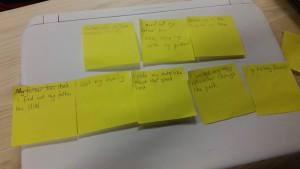Week 4 Lectorial Reflection
The concept of media can be seen from many different perspectives and Adrian Miles’ presentation that media is a thing, not a meaning is based on an individual’s life experience shaping how they view media. The concept of a separation between a mind and body, that thinking is separate form making, and its outdated nature in current society was eye opening for me in terms of study habits and willingness to take the extra step. Adrian’s thoughts on how thinking about something is not beneficial unless you follow up with an action to reinforce those thoughts shows how a good work ethic and a combination of mind and body is imperative in learning.
Liam Ward’s presentation on editing was fascinating for me. His opening piece on how editors view the process as “about fixing problems” reveals how central editing is to a film’s narrative and commercial success. “If you break it, it creates meaning” is a compelling way to approach editing any piece of media as it exposes the fluidity of a text’s meaning as well as the differences of meaning for each individual who consumes it.
Having to create scenes in which they could all be interchangeable along the narrative’s timeline ensured that all scenarios needed to be broad without any specific mention of time. The initial conclusion for our narrative was waking up in the hospital at 1am and so to ensure that the sequences could fit anywhere in the timeline they all had to relate to a large accident or revelation, resulting in three various forms of turning points to ensure the protagonist ended up at the hospital. This resulted in a fairly dark narrative which in turn morphed the relatively safe and pleasant sequence of buying flowers into a sombre reminder of death, thus revealing how meaning of a scene is heavily dependent on the surrounding context of the entirety of a text.

Leave a Reply